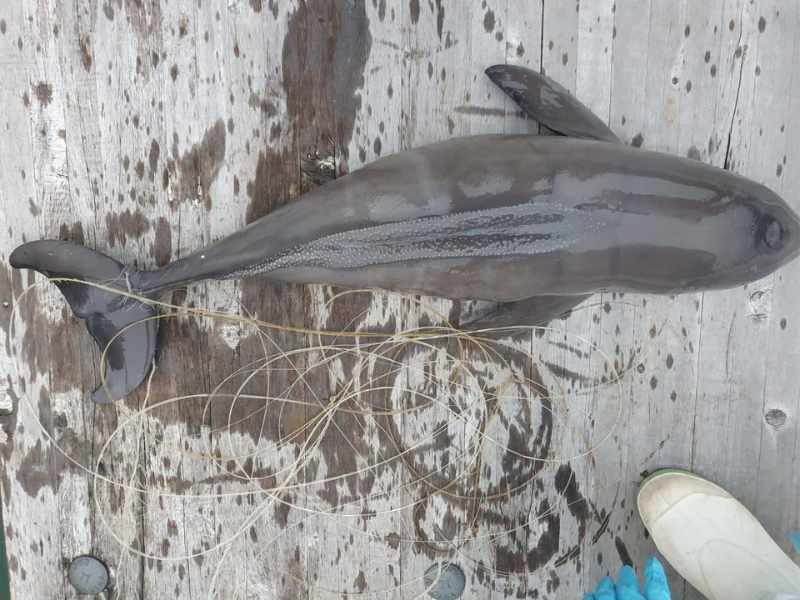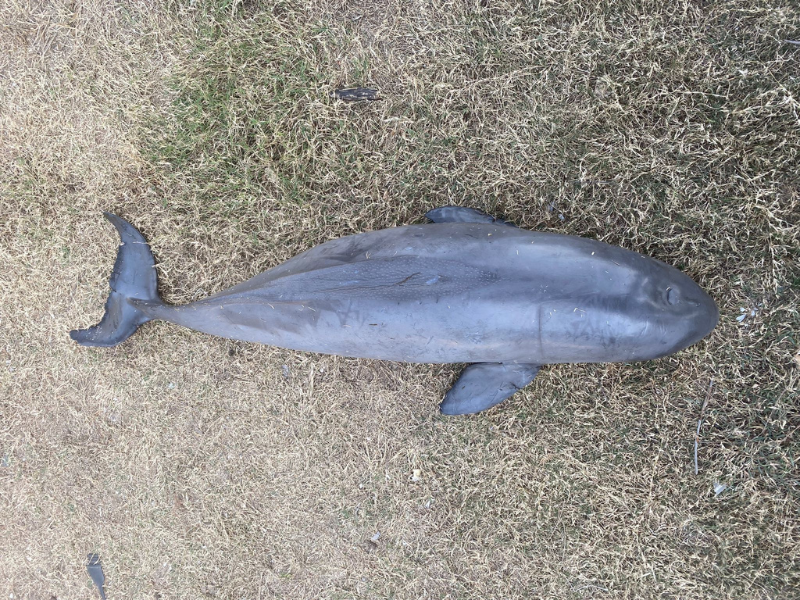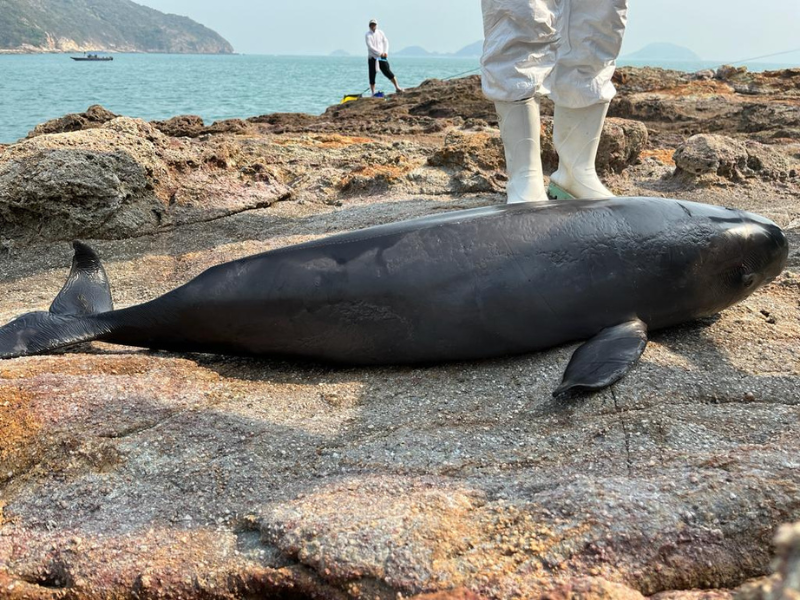(HONG KONG, 1 June 2023) Cetaceans stranding problem in Hong Kong has always been an issue of concern of Ocean Park Conservation Foundation, Hong Kong (OPCFHK) over the years. Since 2006, OPCFHK has been collaborating with Agriculture, Fisheries and Conservation Department (AFCD) to investigate the cetacean stranding cases in Hong Kong. Ocean Park also supports the “Marine Life Stranding Response Team” with technical expertise through their veterinary team and animal care team. OPCFHK handles around 30 stranding cases per year, however, as of May this year, there were as many as 17 cases, reflecting a serious and concerning situation.
According to the findings from the stranding cases over years, OPCFHK has found that human activities are the main cause of cetacean deaths among stranding cases where the cause of death can be determined. Fishing nets or gears entanglement is one of the major reasons for cetacean stranding in Hong Kong, while trauma caused by boat and lung infection (including pneumonia, parasitism, and bacterial infection) are common causes of death. In just the first few months of the year, we continue to see cases where cetaceans were harmed by human activities:
 |
Case One: |
 |
Case Two: |
 |
Case Three: |
Human activities often pose a significant threat to the survival of cetaceans. Chemicals, wastewater, plastic waste, fishing nets and gears cause marine pollution, severely affecting their lives. Cetaceans also suffer from different serious illnesses or even die due to accidental ingestion of waste and infection by pollutants. In addition, ships and marine engineering bring noise pollution which affect the hearing and communication abilities of cetaceans, bringing harmful impacts to their survival and reproductive abilities.
“Cetaceans are an integral part of the marine ecosystem. Compared to the same period last year, we have observed an increased number of cetacean stranding cases, reflecting that marine pollution, coastal development, and fishing activities are seriously affecting the survival of cetaceans, causing them to lose their habitats. This makes cetacean conservation in Hong Kong even more challenging. We hope the public can be more alert to this issue and support the government and relevant organisations in strengthening conservation efforts and taking effective measures to reduce the risk of causing injury or death to cetaceans, so as to ensure the survival of cetaceans in Hong Kong and maintain a balanced ecosystem. OPCFHK will continue to work with the government and other relevant organisations to protect Hong Kong's rich marine biological resources and ecological environment," said Ms Judy Chen, Foundation Chair of OPCFHK.
OPCFHK urges the public to report live stranded cetaceans or cetacean carcasses as soon as possible by calling 1823 to inform AFCD and providing the date, time and location of discovery, status of the stranded cetacean, its length and other characteristics, as well as the caller’s name and contact number. This provides useful information for the Response Team to handle the case promptly.
Every one‘s effort in the society is necessary to effectively reduce cetacean stranding cases. As summer approaches, citizens should avoid using shampoo and shower gel on boats to prevent untreated chemicals from directly polluting the marine environment. Littering in the sea or on beaches should be avoided to reduce damage to cetacean habitats and marine ecology. Also, fishermen should handle and dispose their used fishing gear or fishing net probably to avoid them from entering the ocean. Citizens can also pay more attention on the beach and help to dispose used fishing gear or fishing net to the nearest rubbish bin, reducing the risks for getting into the ocean and cause potential entanglement.
Irresponsible or unregulated dolphin watching activities may cause disturbances and harassment to the wild Chinese white dolphins. Citizens should avoid touching, feeding or harming dolphins during the activities. They can also remind the boat drivers to navigate slowly and steadily, and keep a distance of 100 metres between the boat and the dolphin groups, avoiding chasing or intercepting the course of the dolphins. Citizens should also read AFCD's Code of Conduct for Dolphin Watching Activities before joining the activities, preparing themselves to reduce the impact and disturbance to the dolphins.
The Marine Life Stranding Response Team will attend the site timely after receiving a stranding report, to conduct necropsy on site or at the Hong Kong Marine Life Stranding and Education Centre depending on the carcass condition. The team will then collect samples for further examination. In case of live stranding, OPCFHK will work with AFCD and Ocean Park to explore options of rescue.
Located in the Ocean Park, the Hong Kong Marine Life Stranding and Education Centre is the Asia’s first full-scale necropsy, virtopsy, research and education facility that offers all-round analysis of potential causes of injury and death of marine life funded by HSBC 150th Anniversary Charity Programme. It opens to public on Second Sunday of each month, providing guided tour to introduce OPCFHK’s work in marine life conservation and stranding response operation. For more details, please visit: https://www.opcf.org.hk/en/conservation-research/hong-kong-marine-life-stranding-and-education-centre